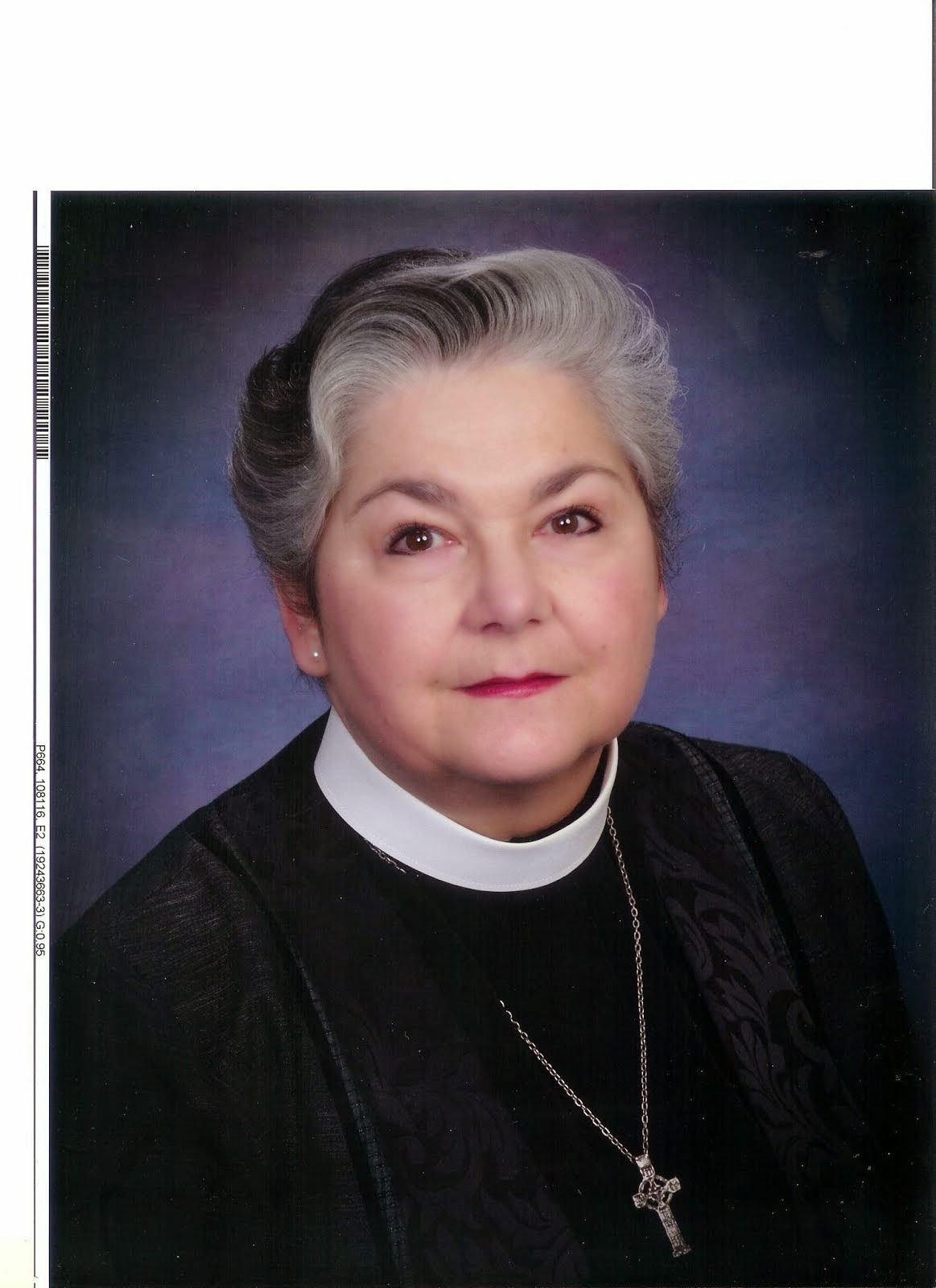"Unless I see the mark of the nails in
his hands, and put my finger in the mark of the nails and my hand in his side,
I will not believe."
I suspect that we
all have a little bit of the apostle Thomas in us. We want concrete proof of
things, because we have been trained to believe what we can see or feel or
touch or prove using scientific methods or math. It’s how we are trained in
school, and we hate it when we are faced with things that don’t fit neatly into
a scientific proof.
And so when we hear
this story of Thomas, who wasn’t around when Jesus came back to visit the
disciples after his death and didn’t believe their recounting of this visit –
how could it be? – we become distinctly uncomfortable because we know that
Thomas is portrayed as a man whose faith is weak, even though we probably would
react the same way if we had been in the situation that Thomas was in.
Let’s reset the
story and see how it feels to be Thomas.
Imagine your brother
is dying of cancer, an awful cancer that has stripped his body of all energy
and health so now he is a mere skeleton with skin stretched like brittle
parchment over the frame. You love him, and pray he would get better – a
miracle, please God! – but no miracle comes. Then you pray that God would take
him because he is so sick and will not get better and it is hard to even go to
visit him, with the smell of the sickroom about him and no more words to
say…and finally, mercifully, he dies. His spirit leaves his body – is there
anything so still as one who is dead? – and you set about the hard work of the
aftermath, having his body cremated, having the memorial service, and then
having his ashes interred. Ashes to ashes, dust to dust. Your heart is broken,
but you soldier on.
A couple of weeks
pass. The ache is still there, like a toothache that cannot be relieved, but
instead of a sharp insistent flame in your jaw, it is a dull steady ache in
your heart. You can ignore it for a while, but it grumbles away under the
surface, flaring up when you have to call the insurance company, or when you
try to figure out how to shut down his Facebook page.
You go join some
friends at the pub on a Friday night, thinking maybe a beer will dull the pain
for a while. You know that’s not the best idea, but whatever…
…and as you get to
the pub, your friends say “You will NOT believe what happened today. Remember,
when you were over making a sales call to the Framwell account? Your brother
walked into the office, looking for you! It was wild, man! We couldn’t believe
it, but sure enough, it was him. I cannot BELIEVE you missed him!”
You don’t know
whether to slug the guy who’s told you this or to laugh or to cry. A cruel
joke, this. What the heck are they thinking? Can’t they see how much you’re
hurting?
But they insist.
It’s not a joke, your brother was here, he is ALIVE, man, ALIVE!
And now you get mad.
This is all nonsense. And you say, “I don’t believe you. Unless I see him
myself, touch him, hear him talk to me, unless I see the scar from his PIC
line, unless I see his limp from when he jumped into the fishing hole when we
were kids, I won’t believe it. You guys are full of it, or else you’re crazy.”
Of course, because
what they’re telling you is crazy. You’re a rational human being. You saw your
brother die. You identified his body when they took it to the Cremation Society
so they would be sure the name matched the person. You prayed and cried and
buried him. So your response is the rational one: this is impossible, and I won’t
believe it until I see it for myself.
Just like Thomas.
Because Thomas was a rational man, too. And he thought his fellow disciples all
went a little bonkers – too long hiding out in fear of the Romans, maybe. So he
said what he said, just like you or I would say the same thing.
And then something
happened. Something utterly irrational. Jesus showed up. And he invited Thomas
to put his fingers into the wounds, just to give him the empirical evidence he
was calling for to prove that it really was Jesus.
And Thomas was
invited into the mystery that is the resurrection of Jesus Christ from the
dead.
Mysteries…we don’t
much like mysteries, because we cannot wrap our minds around them. We cannot
prove them. They don’t fit the rules of our understanding of the world, and yet
they occur. But Christ keeps inviting us into mysteries. It would be so much
easier if he didn’t, but he keeps on doing it.
The great physicist
Richard Feynman once said “It does no harm to the mystery to know a little
about it.” I think of that quotation every time I am invited by Christ into
another one of those mysteries…because it requires me to think a lot harder
about a mystery than is comfortable. Especially because it is unlikely that I
will figure out the mystery.
When I was in seminary,
I took a class called Systematic Theology with a brilliant teacher. Here’s the
big joke about that class: we may think that if we try, we can come up with a
system to understand God – thus the name Systematic Theology. But our human
attempts to come up with a Grand Unified Theory of God, a system to understand
the mysterious vastness that is God, always fail. Because God is more than we
can imagine. More than we can comprehend.
And oftentimes
writers will say that since we cannot use scientific principles to prove God,
since we cannot come up with the Grand Unified Theory of God, that God does not
exist.
But hear what
Feynman, who was writing about science when he wrote the prior sentence I
quoted to you, said about the work that he did: “If you thought that science
was certain – well, that is just an error on your part.”
But if science isn’t
certain, if the nature of the work is a continual exploration of mysteries that
we may never know completely, then why do we expect science to answer our questions
about the mystery of God?
Because here’s the
thing: science is all about exploring incomprehensible possibilities, and
nowadays, science plays most creatively in areas that are very difficult to
prove using the methods and technologies at hand. We may have had a brief
glimpse of the Higgs Boson, we may theorize about dark matter and string
theory, but much of what is now being put forth as scientific hypotheses may
not be proven in our lifetime, or possibly even ever.
How is that
different from being invited into a mystery? Not at all.
I do not know how
Christ rose from the dead. It’s a mystery, a miracle attested to in Holy
Scripture. But more importantly, I know why he did…to rescue us from
ourselves and all the incredibly stupid things we do to damage our relationship
with our creator.
That first quote
from Feynman? Perhaps it would be helpful if you hear it in the context of the
paragraph in which it sits: “The vastness of the heavens stretches my
imagination - stuck on this carousel my eye can catch one-million-year-old
light. It does no harm to the mystery to know a little about it.” And this from a physicist who said he was an
atheist…doesn’t it sound like systematic theology to you?
We only know a
little about mysteries that are placed before us. We are encouraged to explore
them, wonder about them, ask questions, struggle with them.
Did you notice that
when Jesus comes back for his little return visit to Thomas, Jesus doesn’t
berate him or make him feel bad about the whole “unless I put my fingers into
the wounds” business. He simply says, “yes, I know this is hard to understand.
Come on over and do what you said you needed to do, so you can start to wrap
your head around this mystery. Let me help you to believe.” Jesus is not in the
business of making those who struggle with the mysteries feel bad about
themselves. He simply gives them what they need to start to believe.
The resurrection is
a hard thing for us to understand. Some faithful Christians struggle their
whole lives with it. But every now and again, Jesus says, “it does no harm to
the mystery to know a little about it” and gives us a flash of insight into it.
Not the whole picture – we’re not ready – but enough so that we can say “my
Lord and my God. I don’t understand the mystery yet, but I feel it a bit more
now. I believe. Thank you.”
Amen.








No comments:
Post a Comment